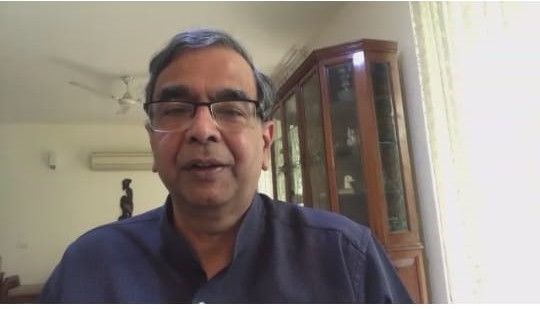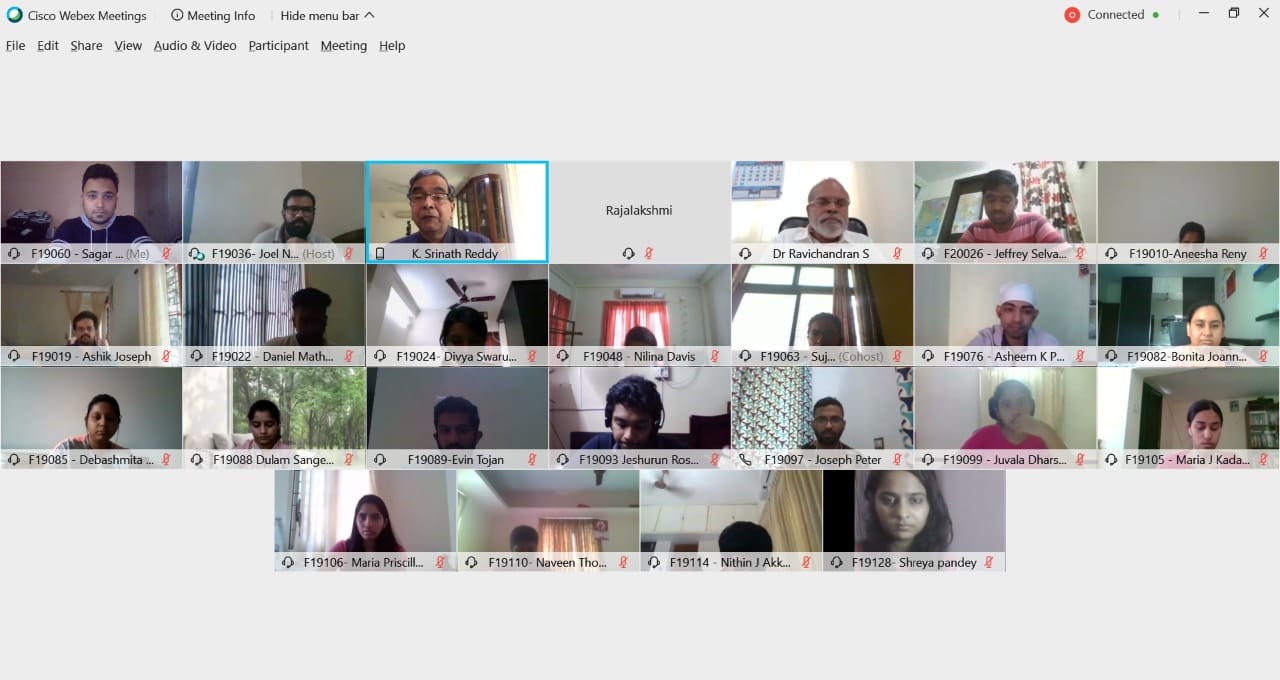
The BMI session on 6th November 2020, was an information loaded session adorned by Prof. Srinath Reddy K, President of Public Health Foundation of India, and Former Head of the Dept of Cardiology, AIIMS. Under his Leadership, the PHFI has set five multi-disciplinary services to promote Public Health Education, Research and Technology. He is serving as Professor of Epidemiology at Harvard and several other intercontinental Universities. He has also authored a billion copies sold bestseller “Make Health in India”. He is the first Indian to be elected to the National Academy of Medicine, USA. Our guest is a Padma Bhushan awardee, President of World Heart Federation, and holds a prominent position in the advisory council of multiple states of India in Public Health.
Our guest clarified the significance of this session on Public Heath to Management students as they would be the future leaders working with Government, NGO’s and Private organisations making and shaping decisions on Health of the Population. Supply and Demand disruptions unleashes a vicious cycle in which the economy spirals down. There must be continuous sensitisation of other sectors towards public health.
On explaining what Public Health is, our guest expounded that Clinical medicine deals with individual disorder while public health acts at a population level identifying the determinants of health that can affect individuals. Risk factors, influences and determinants like Social, economic, cultural, environmental, and commercial have a global impact and it is important to understand its dynamics. IMF states that COVID19 could affect 50% global economy.
Pollution has been a great determinant posing a risk factor not only to Respiratory but also to Cardiovascular system. Heat and Climate conditions influenced by Global Warming has many other consequences like increase in vector borne diseases. Mental health is affected during hot climates, inter group and intra group conflicts are borne to rise.
Food and agricultural system is expected to be greatly altered by climate change. Particularly, staples like rice and wheat gets affect by 10% decrease in production with every 1 degree rise in temperature. The protein, zinc and iron content has been reducing with increase in temperature. The rising water level presents a lesser fish catches and affects the water drainage system across the delta regions.
Along with the global level initiatives, two major things must be done to ensure the survival of humans. That would be the “Mitigation and adaptation of climate change”
Our guest made it clear that economic development is believed to be boosted by better heath dividend. Also, heath is expected to accelerate economic growth. Economists Larry Thomas and Jamieson said that every 1 USD invested in Public Health gives a return of 9 USD in low income countries and 20 USD in middle income countries.
Our guest added on a newer dimension that Health is an important Job creator. The increasing global aging population need more heath care needs. This is indeed a great opportunity for India with a great demographic dividend.
It is important to implement Universal health coverage and employment coverage with multi-layer and multi skilled workforce. India should work on to increase its spending on Health and should enable lower out of pocket spending by citizens on health care. So how to achieve the universal health coverage is a big question and WHO has given a three dimensional coverage pattern: (a) Population coverage (b) service coverage and (c) cost coverage.
The session highlighted many nuances on the interlinkages between heath, economy, and human welfare. It vividly gave exposure to why Public Heath should be everybody’s business. It was indeed a great interactive session. – Jeneve Vinolia P,BMI – F19.
“It was truly alarming and urged me to think upon how as an individual I could be contributing to humanity” – Michael Prasan, F19
“The global warming is a well-known huge threat but the cascading effects on human species is worrisome and needs action that would create an Impact. Thanks to Professor for enlightening us” – Joe Sanya, F19

